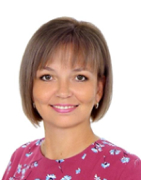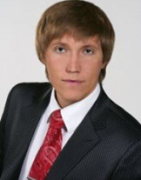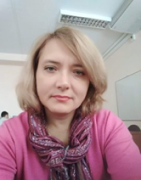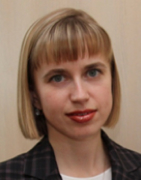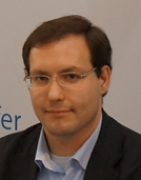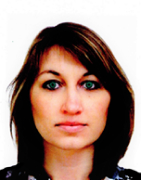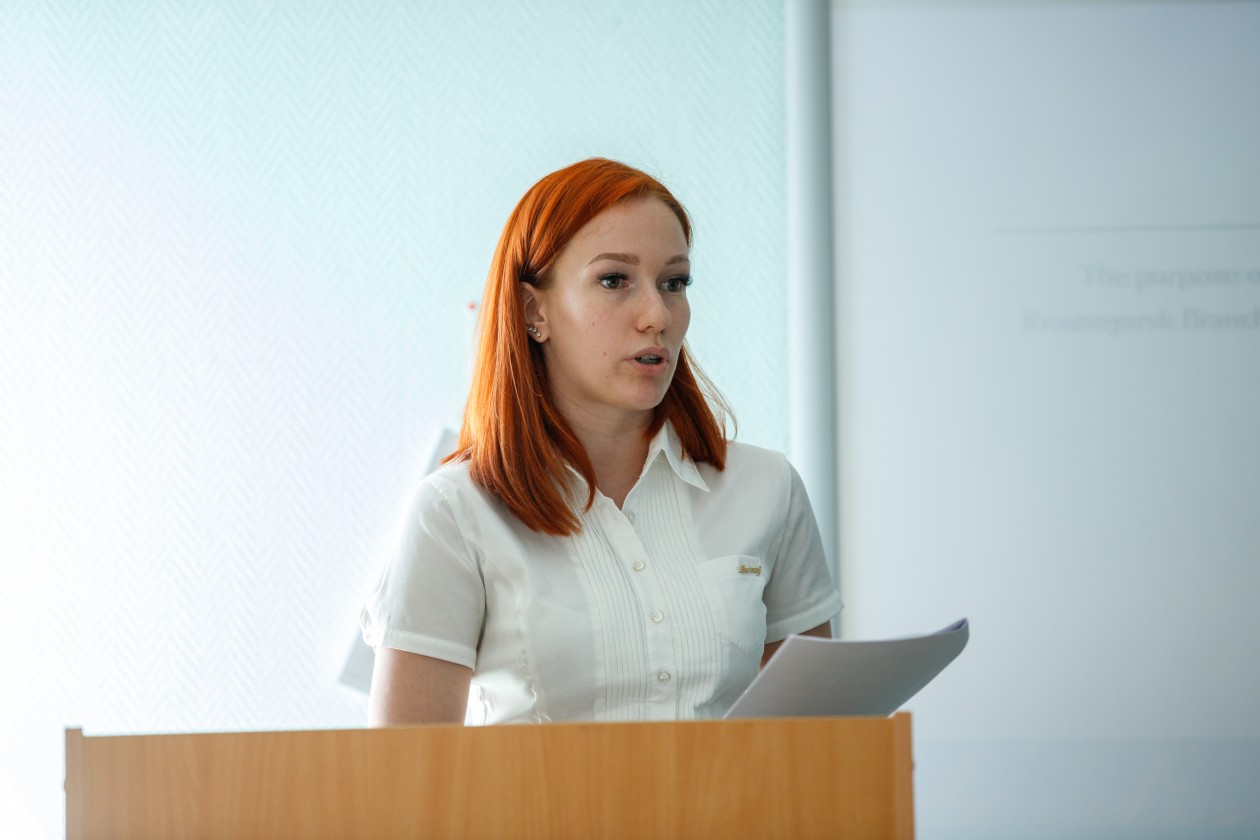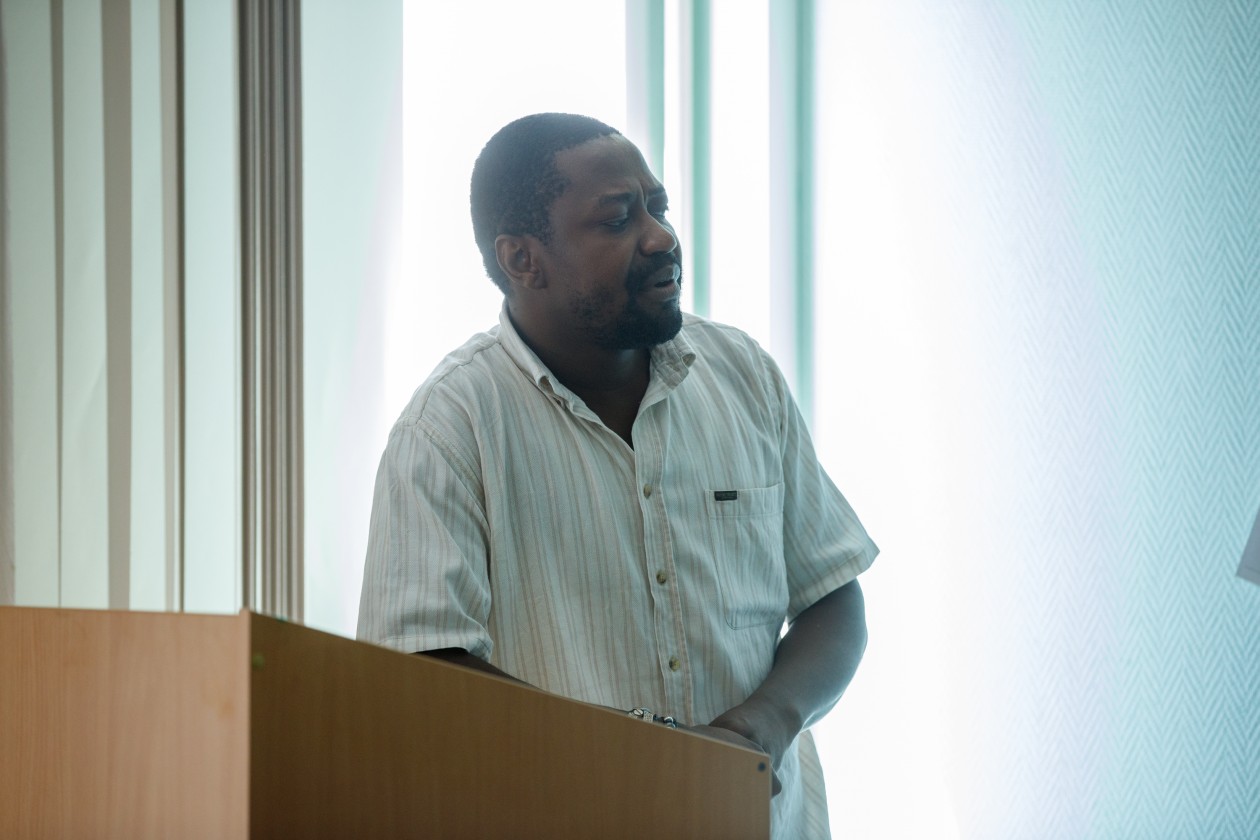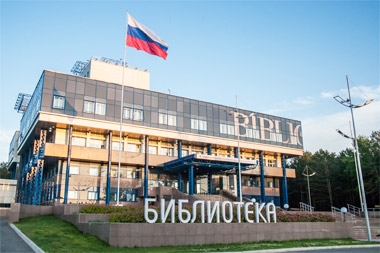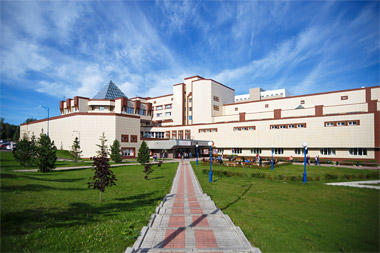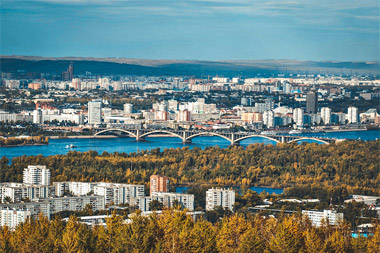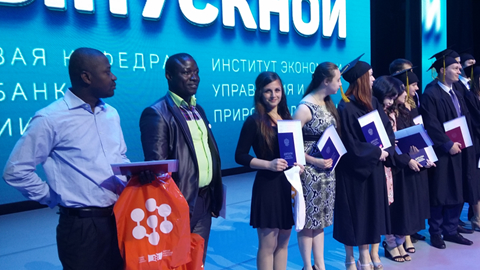
The aim
The aim of the program is to develop new skills in young personnel necessary for adaptation to the digital economy and responding to the challenges of the rapidly evolving banking sector.
The program is presented both by disciplines that reveal modern trends and problems of banking operations and services using fintech technologies and tools (i.e. cloud technologies, big data, artificial intelligence, etc.), as well as basic disciplines that deeply study the issues of banking management. Particular attention is paid to the specifics of managing new risks that have arisen in connection with the huge growth of IT and FinTech, the transformation of business models, collaboration and competition with technologically advanced financial companies and non-financial enterprises. It is widely acclaimed that a modern bank employee must possess fundamental theoretical knowledge in finance and economics in order to understand the ongoing processes, which have always been rather complicated to formalize. After all, a bank as a financial intermediary is currently the main customer and consumer of financial technologies.
The objective of the programme
You develop your knowledge, understanding and insight into how banks, financial institutions and markets function in the economy and global financial system. You also develop an appropriate range of cognitive, critical, intellectual and research skills, plus relevant personal and interpersonal skills to interact in the real world of business and finance.
The programme will be of particular interest to those wishing to build careers within banks, specialised financial institutions and fund management, securities dealing firms, multinational companies, or to occupy roles in corporate financial management and independent financial advice.
Upon successful completion of this programme, you should be able to:
- acquire an advanced level of knowledge of the theories, models and practice of banking, finance, investment, risk, and regulation;
- understand how the role of banking and finance integrates within the wider business environment;
- demonstrate clarity in problem definition, and demonstrate the ability to critically analyse and use relevant information to offer interpretations and solutions within a multi-disciplinary banking business perspective;
- recognise and respond to the relationships between different functions within financial services organisations.
Program benefits:
- The content of the program is compiled taking into account the requirements of employers and agreed with the leading specialists of Sberbank, the leader in the implementation of digital technologies in Russia.
- Students are trained by highly qualified specialists, including visiting professors of foreign universities. Practical teachers in the field of business process management from commercial banks are regularly involved in the academic process.
- Students undergo practical training in the departments of risk management, treasury, corporate lending of commercial banks, primarily in Sberbank of Russia.
- The program is flexible, adaptive and mobile, with frequent comprehensive training webinars by Russian and foreign academics and practitioners.
- The program has a vocation-oriented nature, while the main focus is shifted to the teamwork of students to enable them to find solutions to difficult practical crisis situations, to work specifically with large amounts of data within the activities of banks.
- The Master's degree holder could continue studying in order to get a SibFU PhD degree.
Competitive advantages for a graduate include:
- Gaining unique hands-on knowledge in the field of modern high-tech banking.
- A chance to participate in corporate projects launched and held by Sberbank PJSC.
- Possibility of obtaining a Dual Degree on the basis of a mutual agreement with one of the oldest European universities (University of Siena, Italy).
- Studying in a cross-cultural and communicative academic environment can make it easier for a fresher to adapt to work in international companies in the future.
- Opportunity to "pump" the English language skill for students who are not native English speakers.
Irina A. Yankina
Professor, Doctor of Economic Sciences
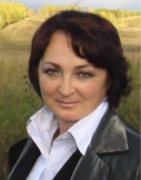
Current Position: The head of the Chair of Digital Financial Technologies of Sberbank of Russia of the School of Economics, Public Administration and Finance Siberian Federal University
Address: 79 Svobodny, Krasnoyarsk, 660041, Russia
Tel: 7 (913)509-39-26,
7 (3912) 46-98-71;
Fax: 7(3912) 44-85-25
E-mail: IYankina [at] sfu-kras [dot] ru, yankina_ia@mail.ru
Education and Academic Degrees:
- 1982, Irkutsk Institute of Economics, Qualification: «Finance and Credit»
- 2000, Ph.D. in Economics Irkutsk Institute of Economics, Qualification: «Finance, Money and Credit»
- 2010, Doctor of economic sciences, Russian State Social University Qualification:»Finance, Money and Credit», Thesis: The monetary flows in the activity of agricultural consumer cooperatives: theory, methodology, practice
Professional Career:
- 1982-1988: Economist, Office of the State Bank of the USSR, the credit department;
- 1989-1993: Head of Department for International Settlements, Krasnoyarsk branch of Bank for Foreign Economic Affairs of the USSR, Vneshtorgbank of the Russian Federation;
- 1993-1994: Head of finance and accounting office management "KraMZ-export" JSC "Krasnoyarsk Metallurgical Plant";
- 1994-1996: Economist, Department for Foreign Economic Affairs, Krasnoyarsk branch of "AvtoVAZbank";
- 1996-2010: Assistant Professor, Department of Economics of Trade, Department of Finance and Credit, Krasnoyarsk State Trade Institute of Economics;
- 2011 and Present. The head of the Chair of Digital Financial Technologies of Sberbank of Russia of the School of Economics, Public Administration and Finance Siberian Federal University (SFU)
Research Interests:
- System of monitoring of the Financial integration for progress of human potential and qualitative economic growth
- Monetary and Banking Policy
- Development of methodology and study for the establishment of consumer organizations and mutual credit
Membership and qualifications:
2014-2015 Founded in January 2014, EuRun-BIS (Euro-Russian-Network-for-BAnking-and-Insurance) is a network of European and Russian researchers
ElenaV. Smirnova |
Current Position: Professor at the Professor at the Academic Research Laboratory for Banking Technologies, School of Economics, Finance and Public Administration, Doctor of Physical and Mathematical Sciences |
Yulia I. Cherkasova |
Current Position: Associate Professor at the Chair of Digital Financial Technologies of Sberbank of Russia, School of Economics, Finance and Public Administration, PhD in Economics |
Igor V. Tonkoshkurov |
Current Position: Associate Professor at the Academic Research Laboratory for Banking Technologies, School of Economics, Finance and Public Administration, PhD in Economics |
Tatiana N. Yamskih |
Current Position: Associate Professor, Head of Foreign Language Department, PhD in Pedagogy
E-mail: TYamskikh [at] sfu-kras [dot] ru |
Tatiana Kustitskaya |
Current Position: Associate Professor of Applied Mathematics and Computer Safety Department, PhD in Mathematics
E-mail: tkustitskaya [at] sfu-kras [dot] ru |
Vladislav N. Rutskiy |
Current Position: Associate Professor, Chair of Theoretical Economics, School of Economics, Finance and Public Administration, business-consultant, PhD in Economics, MSc in Mathematical Modelling
E-mail: vrutskiy [at] sfu-kras [dot] ru, rootskey.vn@gmail.com |
Olga S. Bavrova |
Current Position: Senior lecturer and academic tutor at Academic Research Laboratory for Behavioral Economics and Communication Development and the Chair of Digital Financial Technologies of Sberbank of Russia, Siberian Federal University, Krasnoyarsk
E-mail: okhudyakova [at] sfu-kras [dot] ru |
| Duration: | 2 years |
|---|---|
| Starting date: | September, 1st |
| Study intensity: | Full-time |
| Delivery mode: | Blended |
| Type of degree: | Master in Finance and Credit |
| Credits: | 120 ECTS credits |
| Language of instruction: | English |
| Academic requirements: |
|
| Tuition fee (per year): | 250,000 rubles The cost does not include accommodation and living expenses. The price could change at the time of signing a learning agreement. |
| Application deadline: | July, 29 |
| Accommodation: | On-campus accommodation is available in double and triple-occupancy rooms (€ 20 per month). |
| Practicalities: | Airport transfer and invitation letter for a Russian study visa are provided by the University. |
| Courses | ECTS credits | Exam / credit |
|---|---|---|
| FIRST YEAR | ||
| Research methods in Banking and Finance | 3 | Credit |
| Fundamentals of Bank | 4 | Exam |
| Data analysis methods and machine learning | 4 | Exam |
| Applied Econometrics for Financial Intermediation | 4 | Exam |
| Monetary Economics | 3 | Credit |
| Bank Capital Management | 3 | Credit |
| Corporate Valuation | 3 | Credit |
| Project management in Banking | 3 | Credit |
| Banking Communication. The banking ethics | 3 | Credit |
| Financial corporate responsibility and ethics | 3 | Credit |
| Scientific - methodological workshop | 2 | Credit |
| Financial Modeling | 3 | Credit |
| Fundamental of Derivative Pricing | 4 | Exam |
| Financial Investment Risk Management | 3 | Credit |
| Quantitative Methods in Finance | 2 | Credit |
| SECOND YEAR | ||
| FinTech | 3 | Credit |
| Banking and Finance Law. Anti-money laundering | 5 | Exam |
| Strategy and Organisation in Financial Institutions | 3 | Credit |
| Financial engineering | 4 | Exam |
| Monetary and Fiscal policy | 3 | Credit |
| Strategic Asset Allocation | 3 | Credit |
| elective: Bank Management and Supervision | 3 | Credit |
| elective: Corporate Taxation and Regulation | 3 | Credit |
| Internship | ||
| Academic internship | 6 | Credit |
| Applied research project | 28 | Credit |
| Applied research project | 28 | Credit |
| Master’s Thesis | 6 | |
| Total | 126/120 without elective | |
Teaching methods
Interactive and collaborative teaching: Teaching is delivered through a combination of classroom sessions, workshops and seminars. Debate and interaction through the exchange of knowledge and experience is encouraged between both students and staff.
Dedicated support: You will be assigned a personal academic supervisor to guide you through the research project and dissertation stage of the programme. Subject tutors are also on hand to provide guidance on specific modules. The course director will help with general academic and administrative issues and there is a student liaison office to help with any other problems or issues.
Online support: Moodle, SibFU's online learning system StudySpace makes flexible learning easier. This innovative system means you can communicate easily with staff and course colleagues through bulletin boards and discussion groups.
Unique characteristics
Our finance programmes equip you with an impressive set of skills and specialist knowledge. In addition, inbuilt practical experience will help you succeed in a competitive job market. This programme is ideal preparation for a career with investment and commercial banks, insurance companies, specialised financial institutions, trading companies and financial management roles in other industries.
Many students make links in their industry of preference by undertaking a real-life consultancy project as their dissertation for an organisation operating in the sector. This project will result in managerial recommendations which can be applied immediately, not to mention providing you with references and contacts for when you graduate.
Academic career path
The Master’s degree holder can continue studying to earn a PhD SibFU degree
05.2022 Meeting at SberUniversity
As part of the Master's program in Banking, there is active interaction between Siberian Federal University and Sber. One way of this interaction was the Student's Day event organized by Sber on May 6-8 in Moscow. The meeting was held with students of Sber educational programs from various Russian universities on the campus of SberUniversity, which could be rightfully called a small eco-city.
The meeting was attended by students from the following universities: St. Petersburg State University, National Research Tomsk Polytechnic University, Novosibirsk National Research State University, ITMO University, Siberian Federal University, Southern Federal University and others. The participant from Siberian Federal University who passed the competitive selection and attended the event was a second-year master student of the Banking program Nikita Chudopal.
The main part of the announced program was the speech of the chief experts and heads of such Sber departments as SberData, the Research and Innovation Department, the Corporate Modeling Center, SberCloud and SberAutoTech. After the main part there was a business game held between the invited students aimed at developing soft skills and motivating their development.
At the end of this event, students were given the chance to independently explore all the corners and opportunities of SberUniversity. As part of living and working on the campus, it was possible among other things to ride at SberAuto unmanned vehicle to any point of the eco-city, visit a cozy and eco-friendly Japanese garden, walk through a fascinating garden labyrinth, ride electric scooters and electric bicycles, warm up in the gym, swim in the pool and complete an eventful day in a modern sports bar.
Thus, the organizers of the event provided students with a unique and amazing opportunity to plunge into the treasure trove of invaluable information received from the direct heads of Sberbank departments firsthand. In addition, a business game aimed at networking made it possible to quickly and easily get to know like-minded students from different parts of Russia, as well as exchange contacts for further interaction. All this one-day packed usefulness was seasoned with a comfortable and environmentally friendly atmosphere of SberUniversity.
Visiting of this event is highly recommended as it allows to get acquainted with unique information in a short time, gain food for your own development and secure useful business and friendly contacts.

07.2021 Master's thesis successfully defended: Graduation 2021
The graduates of the program successfully presented the outcomes of their research to the board of professors and practitioners, official representatives of local subsidiaries of VTB bank and Sberbank of Russia.

It should be mentioned that this fourth graduation was quite unusual due to the Covid-19 lockdown. Despite of the fact that these guys didn’t have a chance to study with foreign students and professors and because of the serious restrictions for cross-country travelling in 2020-2021 couldn’t visit the University of Siena within the terms of our Dual Degree Agreement, nevertheless, they all used the challenges for their benefits and managed to devote more time to study and research. As a result, practically-oriented and impressive thesis and excellent speeches that were delivered in high-profile academic English!
Rodion Philimonov made a research project on the topic of “Developing an effective Art-Banking platform”
which aroused a heated discussion. Another research by Daria Shlapak was dedicated to a very topical issue of “Improving the regulation of systemically important banks (SIBs)”
. Denis Lushnikov, after his internship in Sberbank, was keen on dwelling on the topic of “Development of leasing operations in the Krasnoyarsk Territory”
. Nikita Egorov presented a comparative study about “Key factors for the development of national market of bank cards”
.
04.2021 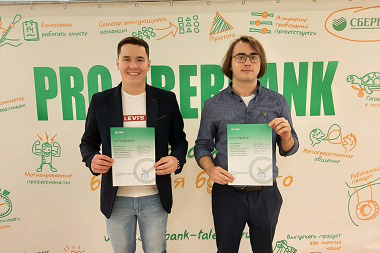 Denis Lushnikov:
Denis Lushnikov: "On April 22, 2021, I was fortunate enough to take part in an all-Russian round table held in the format of a teleconference at the sites of Sberbank in three large cities of Russia (Vladivostok, Khabarovsk, Krasnoyarsk). I represented SFU, the basic department of digital financial technologies of Sberbank of Russia. Topics of the round table "Financial and credit institutions in a turbulent period: challenges of opportunity". I was very impressed by the event. The research topics of the speakers were very interesting and relevant, and there was also an opportunity not only to discuss with each of them, but also to listen to the opinion of authoritative experts. During the discussion, I realized what research aspects I need to improve and where to move on. After the speeches, everyone was presented with branded gifts from Sberbank. The round table is a great opportunity to express yourself. I will undoubtedly participate again next year."
Nikita Egorov: "The all-Russian round table 'Financial and credit institutions in a turbulent period', which was organized by Far Eastern Federal University jointly with Siberian Federal University and Khabarovsk State University of Economics and Law, provided students with a great opportunity to share their research on effectiveness of the banking business in the economy, competition in the financial industry, development of financial technologies and best practices of customer service in the financial sector. The purpose of this event was to analyze the current situation of the banking business in the new economic condition and generalize the results of practical activities on the formation of strategies for financial and banking institutions in the context of the introduction of advanced technologies. The round table was held at the sites of Sberbank in the format of teleconference and gathered together students from Vladivostok, Khabarovsk and Krasnoyarsk.
One of the distinctive features of this event is the opportunity to discuss the results of your research with representatives of the largest bank in Russia, who can make a significant contribution by identifying further research fields or, for example, predicting the possible way of development of your research object. Moreover, it is also important that the round table gives a chance to hear the research of other students, which in turn can give valuable ideas for your own.
To sum up, it is worth saying that the discussion of relevant issues and the exchange of research results at such an event is a really useful and necessary experience"
.
08.2020 Online thesis defence in Siberian Federal University, School of Economics, Finance and Public Administration, Master Degree Program “Banking”.
On 29th June, Monday, the Basic Department of Sberbnk of Russia, together with managers of Sberbank and Gazprombank, held the first online defence of Master Thesis in English in the age of Covid-19 Pandemic. One of the students to present the results of his research project to the public and defend the findings was the second-year graduate of the Master Program “Banking”, Ameer Ali Hussein Al-Magsoosi. The topic of the student’s thesis was “MACROECONOMIC DETERMINANTS AND THIER IMPACT ON CREDIT RISK IN RUSSIAN BANKING SYSTEM”. Here is what the student himself thinks about the procedure he had to go through: “I would like to share my experiences about the way I defended my Master Thesis this year. The first thing was the interesting experience to do a thesis and to defend it to the respectful academics and practitioners in the English language. As you know, English is not my mother tongue, so it was a little stressful to speak it to the public and answer all those difficult questions about my research.
Furthermore, my background was in Administration management and my master degree field was in Finance and Credit Banking. For that reason I found some difficulties, in particular, when I had to specify and choose the up-to-date topic for my research. After that, when the decision was made and the research problem defined, together with other professors, like the head of the program Prof. Yankina and my supervisor Prof. Tonkoshkurov, my teachers Prof. Smirnova and Prof. Cherkasova, I started to dwell on the methodology. And this was rather complicated, I should admit, but day after day I watched a lot of educational videos, took some online courses and learned how to solve my problem in the thesis and how to use the SPSS statistic programming for my purposes.
Not only the theoretical side was difficult to deal with, but also the empirical approach was too complex, so I had to dig into and study myself backwards and forwards. In general, my topic of research was very interesting, up-to-date and profound, but I found it quite difficult to apply the multiple regression and linear regression methodology in my research, as, you know, econometrics for those who have little experience in it may be rather tricky. Therefore, it was for me at first.
Nevertheless, after reading many articles and talking to my teachers I managed to overcome this problem. Professors helped me with statistical methods and econometrics a lot, and then Covid-19 lock-down came suddenly and spoiled my own and many other’s great plans.”
Ameer also mentioned some interesting details about the way he sees the positive and negative aspects of online education. It was the first time he had to take it and here is what he says: “As most of other foreign and local students, I had to face the ups and downs of online education too. The main drawback of the online education for both teachers and students is that it limits opportunities and reduce the chances for the teacher to explain everything to the student on time, for example, the participants of the study process have only access to the “online” board which is not very convenient, I suppose. Moreover, the students themselves have opportunities to explain something to each other or write some mathematical equation on the board so that it is “here and now” to be discussed with your professor. In this respect, face-to-face education is more convenient and lively. Of course, the pandemic prevented students from having real-time life consultations with professors the defending the thesis face-to-face, which is a pity. Anyway, I managed to show my best to the “online” public and impressed the members of the academic board, so my result was highly estimated by many of them. I’m glad I had such an unusual experience here!”
In conclusion, Ameer adds: “Finally my experience was interesting and for sure I benefited a lot from it – it seems that pandemic has already changed a lot our attitude to online teaching and learning, as well as studying and working from home, and that is very promising, I think! Still I wish everything could come back again to normal life, because even if there are advantages of online studying and thesis defence (like, you can do it from any place in the world, the only things you need are regular internet connection and a laptop), there are drawback too. For instance, the lack of this wonderful “academic atmosphere”. I would like to feel the air of the university more, to communicate with students, teachers and professors in real life more often, because this lively communication is in fact a vital part of studying process, and I will surely miss it after I graduate and leave the campus.”
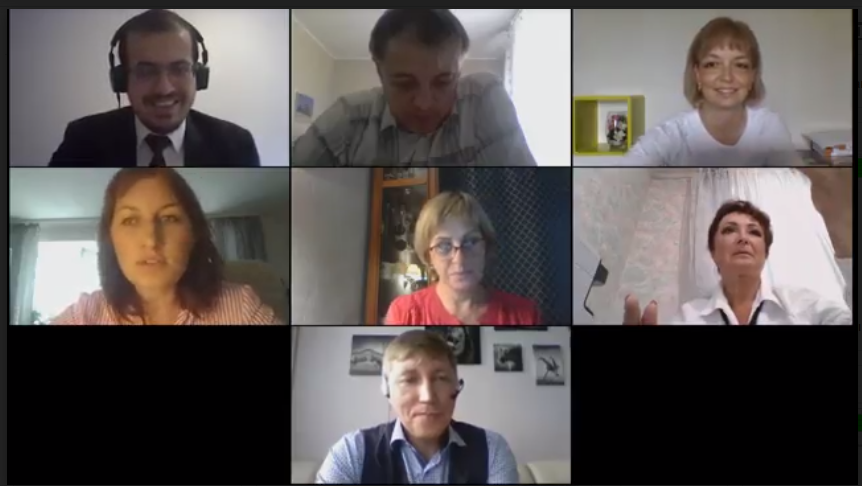
07.2019 The second graduates of the English-taught Master’s degree program “Banking” successfully passed the defense of the thesis. Few words from graduates Elmira Mamedova: “It was a moment we all were preparing for. Two years of constant work in the sphere of Finance and Credit, particulary in Banking, different articles and conferences, doubts and the final choice. The day of the defence of a thesis was very emotional, but now it is all over! I can proudly say, that we did it! I'm happy, because you can call me a Master!”
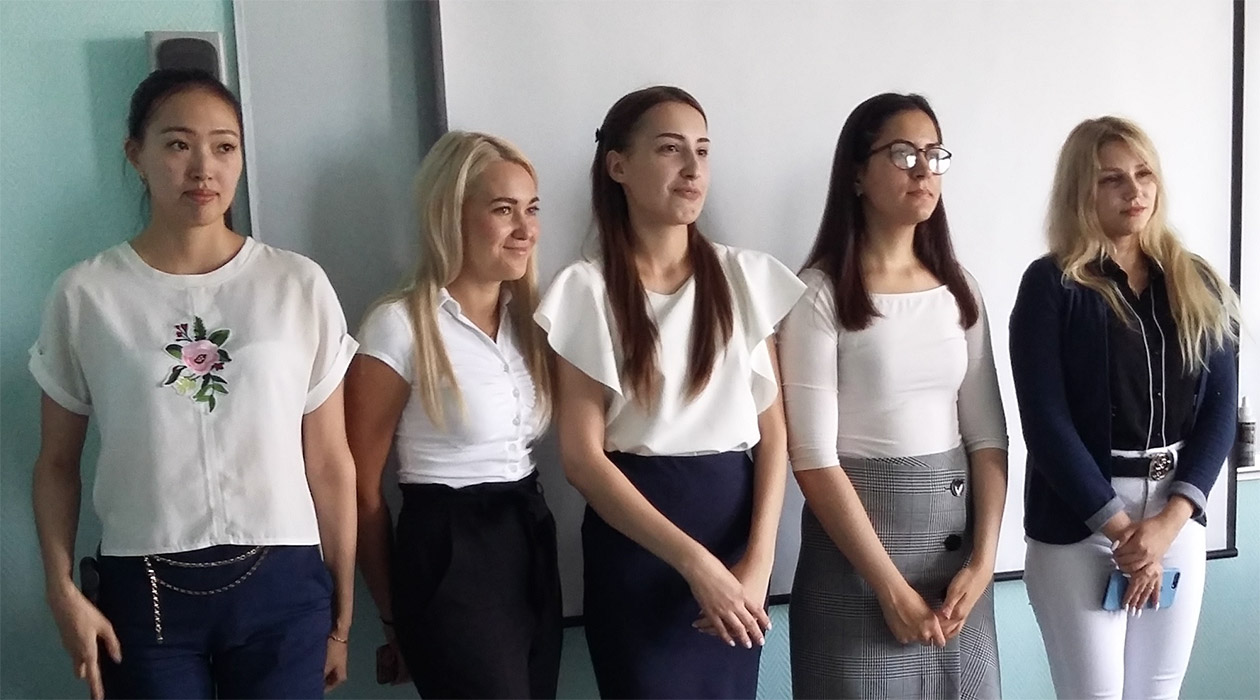
06.2019 Irina Yankina (the programme leader) and other staff from Master’s programme “Banking” are main coordinators of the V International Summer School. Have you already signed up for that awesome school? Today we are going to tell you some interesting facts about it. First of all, this year we had 63 applications from Chinese students! (comparing with 20 last year). Secondly, world-leading experts in Banking already confirmed their participation. They are coming from South Korea, Italy, and of course Russia. Moreover, this year we are going to have professional trainings and play various business games.
Lastly, classes will be held on the Sports Camp “Polytechnic” located on the bank of the picturesque Krasnoyarsk reservoir in the Siberian taiga. Our students will not only be able to continue their studies, but also enjoy Siberian beauty at its finest and have an overall great time amidst nature. We’re planning to bring you a fulfilling programme consisting of studying, sports and entertaining.
Can’t wait to see you all there.
If it so happens that you have other plans for this summer then don’t fret! Our doors will be open and waiting for you in the next one! Even if you can’t be there with us — you can still follow us on Instagram.
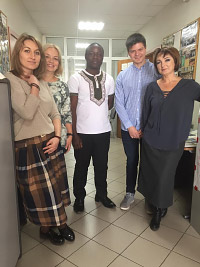 04.2019 Today, we want to persuade you to enter to the Siberian Federal University. For doing that, we asked Joseph Yau Dawson. He is originally from Ghana. In addition, he was a master student of the Banking Education Program of School of Economics, Management and Environmental Studies at Siberian Federal University and successfully graduated the program.
04.2019 Today, we want to persuade you to enter to the Siberian Federal University. For doing that, we asked Joseph Yau Dawson. He is originally from Ghana. In addition, he was a master student of the Banking Education Program of School of Economics, Management and Environmental Studies at Siberian Federal University and successfully graduated the program.
He has participated in selected courses of PhD Program at Cyprus University. After a period of studying on Cyprus, he came back to Krasnoyarsk and we decided that we couldn’t miss the chance to ask him how was it like and what differences did he notice between education in Russia and Cyprus.
Regarding the studying on Cyprus Joseph said that it was quite productive for him. He collected prospective knowledge and he also did mentioned that host-university on Cyprus was amazed by the numbers of subjects, which Joseph was studying at Siberian Federal University. “When I got the improvement of my application in Cyprus, it took some time to choose subjects, which I want to study, because I have had the majority of proposed subjects here at SibFU”
— Joseph said. In case of how relevant knowledge collected at Siberian Federal University with the comparison with Cyprus University, Joseph said that “I can evaluate the knowledge that I have got at SibFU as excellent. It was useful background for a deeper understanding of the subjects, which I was having on Cyprus”.
We also discussed the facilities of the university in Cyprus. “The university facilities are the same as SibFU has, yet the most disappointing thing is that you need to pay for using these facilities. The only thing that is provided to you for free, for students on Cyprus, is the Internet connection on a dormitory”
— said Joseph.
At the final step of our conversation, Joseph released his future plans. Currently, Joseph is preparing for entering on full-time PhD Program. For sure, he is not going to continue studying in Cyprus, because “the cost of education in Cyprus is ridiculously expensive in comparison with Russia”.
He wishes to be a PhD student at Siberian Federal University because he does likes the university, facilities, he has a lot of friends, who live in Krasnoyarsk, but he couldn’t because Siberian Federal University doesn’t have any PhD program on banking. In addition, I asked him- has he tried to send his CV to any Russian company for being hired? Joseph hasn’t ever done it “I don’t know the Russian language, and I’m sure that this issue is my biggest disadvantage for an employer in Russia”.
For the prospective students who are still thinking be or not to be a student at Siberian Federal University, Joseph asked to say — “It’s really worth it, to be an SFU’s student! The price of education is reasonable and competitive. The quality of knowledge is on a high level, and Siberia is not such freezing as you’ve heard or read”.
Written by Oleg Sutormin
06.2018 The first graduates of the English-taught Master’s degree program “Banking” successfully passed the defense of the thesis.
"I learned about the program from the Internet, by that time I finished studying in Rome, there was a desire to continue education, but in the other direction and place, plus I studied several languages at once — one of them was Russian. I chose him because it doesn’t resemble any European language and in Europe the knowledge of Russian is highly appreciated. I’m planning to return to Italy soon and find a good job,— said the graduate of the program Anna-Lisa Cancelli.
"I don’t regret that I came here. It was sometimes difficult to study because I didn’t study banking before, especially not on a language different from my mother tongue, but it was much more difficult for me to get used to frosts".
Anna-Lisa's groupmate Frederick Enning from Ghana is planning to continue his education and get a PhD degree:
"I got a bachelor's degree in my homeland. Banks and finance are my major. In the future I’m planning to develop in this direction. I had no difficulties, I passed an online interview, all lessons were in English, but if there were any difficulties teachers were always ready to help".
A visiting expert the Professor of the Department of Banking and Finance of the University of Regent’s (Great Britain) and the University of Guglielmo Marconi (Italy) Gianfranco Antonio Vento attended the defense and highly appreciated the level of the works presented.
Irina Yankina, the professor of the basic chair of Sberbank of Russia, the head of the Master's program Banking:
"The organization of the international training program is a step by step process and takes time: establishing contacts, building mutual understanding with the foreign scientific community, creating and synchronizing curricula, holding joint lectures, seminars and academic exchange students and teachers. Of course, we had fears that the first experience may prove to be more experimental, but we have a great team, and now the first six graduates of the program will receive their Master’s degrees in the field of "#Finance and #Credit." Now we are working to ensure that from the following year the graduates of this program will be given double Russian-Italian diplomas provided if they study the third semester at the University of Siena (Italy)".
Let us note that the International Educational program “Banking” is fulfilled within the framework of the Governmental Project 5-100 aimed at increasing the competitiveness of Russian universities in the international educational space.
More information?
Please contact our Department of International Educational Programs, SibFU
e-mail: study [at] sfu-kras [dot] ru
phone: +7 391 206-39-28
fax: +7 391 206-21-66
address: 82/6 Svobodny pr., room 427, Krasnoyarsk, 660041 Russia
 VKontakte: vk.com/international_education_sibfu
VKontakte: vk.com/international_education_sibfu
Tutor
Bavrova Olga S.
educational Institution: Academic Research Laboratory for Behavioral Economics and Communication Development, Chair of Digital Financial Technologies of Sberbank of Russia
telephone: +7 (391) 246-98-81, +7 983 209-70-44
address: 3 Maerchak Str. 3., office 7-07
email: okhudyakova [at] sfu-kras [dot] ru
Ask a question
The University
Today Siberian Federal University (SibFU) with over 35,000 students enrolled in its programmes is one of the most actively developing universities in Russia. Annually more than 200 visiting professors — leading scientists from UK, Germany, Spain and USA — deliver their lectures at SibFU.
The University is a winner of the Russian Government grants supporting research projects under the guidance of top-level scholars from Russia and all over the world.
The campus of Siberian Federal University is located in a forested area of the city of Krasnoyarsk. Academic buildings and dormitories of the university are surrounded by natural forest lands and easily accessible by the public transport. More information about the University Campus can be found here.
The City of Krasnoyarsk
Krasnoyarsk is the administrative capital of Krasnoyarsky kray — second largest region of Russia. It is a big industrial and educational centre with a population of more than 1 million people, and also an important junction of the Trans-Siberian Railway.
The city is located on the banks of the Yenisey River in the valley formed by the Eastern Sayan Mountains. Nature reserve Stolby ("pillars") has become the city’s visiting card.
Among the famous people born in Krasnoyarsk are artist Vasily Surikov, opera singer Dmitri Hvorostovsky, biathlete Evgeny Ustyugov, skeletonist Alexander Tretyakov and ice-hockey player Alexander Semin.
In March 2019 Krasnoyarsk proudly hosted the

 Siberian Federal University
Siberian Federal University 

